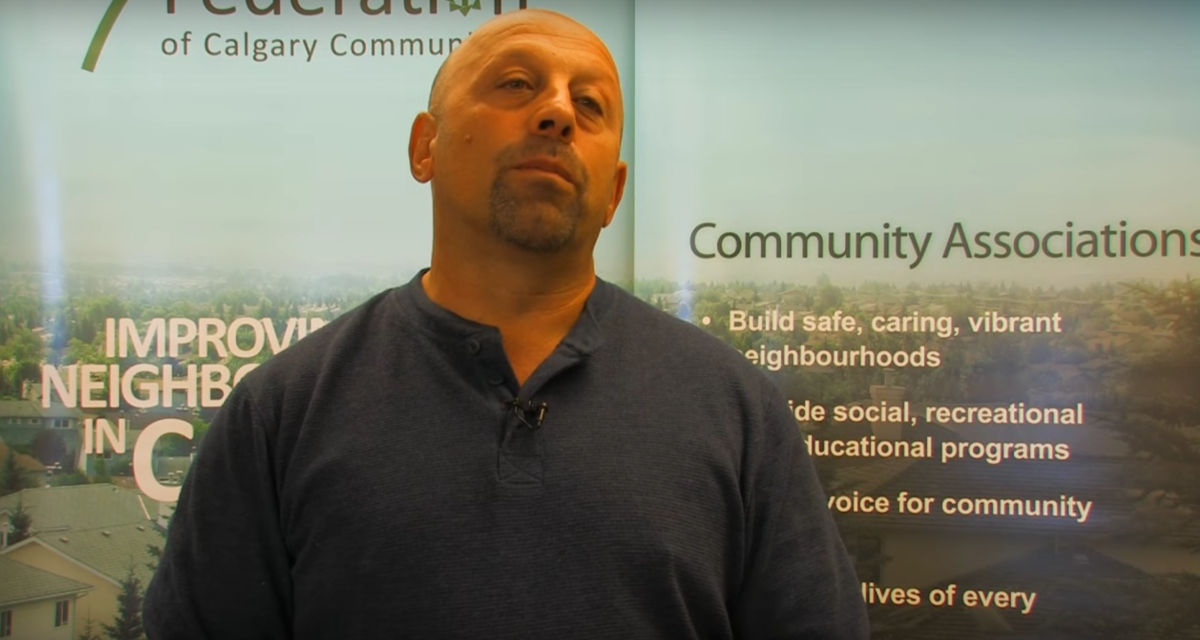Support strong Canadian climate journalism for 2025
It was the Friday before Christmas and Joe Paviglianiti, a senior engineer at Canada’s federal pipeline watchdog, the National Energy Board sent an email to TransCanada Corp. “Sorry in advance for bothering you during your holidays,” he wrote on Dec. 19, 2014.
Paviglianiti and Iain Colquhoun, the National Energy Board's chief engineer, had been in touch for almost a year with a whistleblower who worked at TransCanada as a heavy equipment operator.
The whistleblower had made serious safety allegations against the energy and pipeline company. He was as adamant that his identity be protected as he was that the company had been lax about safety. He wanted the company's standards to improve but he didn't want to lose his job or be blackballed from working elsewhere in the industry.
His allegations would eventually be dismissed by the NEB in October of 2015, but now, staff told him, they were taking his concerns seriously.
“As discussed today, Iain and I were wondering if we could meet over a coffee on Monday morning at 9:30,” Paviglianiti continued, in the email to TransCanada.

The email from Paviglianiti was found among thousands of pages of correspondence, reports and briefing notes, reviewed by National Observer. The documents show a pattern of cooperation between Canadian pipeline companies and the federal regulator, the NEB. Internal emails also reveal missing evidence, sloppy investigations and edits to reports that downplayed mistakes made by industry.
Few understand what the National Energy Board really does, or how far its power extends. The NEB possesses similar powers to a federal court, with full authority to investigate energy companies. Its mandate requires it to to employ 'procedural fairness' and to show no bias. But legal and engineering experts interviewed for this story said that the pattern of behavior apparent in the documents indicate that NEB staff took inappropriate actions that put public safety at risk and raise questions about fairness.
The industry defends its safety record, noting that more than 99 per cent of the oil and gas on pipelines are delivered without incident. The NEB's chairman and CEO Peter Watson has also defended the regulator's oversight, stating in a recent report to Parliament that it holds "companies accountable for the safety of their energy infrastructure over its entire lifecycle, from design to abandonment."
National Observer attempted to interview a number of current and former NEB employees for this story. Most declined to comment on the record. The NEB's media relations department is still working on providing responses to questions posed by National Observer, as of publication. And TransCanada said in a written statement that an NEB investigation has concluded that the company has addressed all of the issues raised by the whistleblower and that there was never a threat to public safety.
What the NEB doesn't tell the public is that some of its serious discussions about pipeline safety took place in restaurants and coffee shops. Critics said in interviews that this habit could tarnish investigations. They said they believe that the casual relationship between the regulator and the regulated should raise reasonable questions from the public.
“There’s that principle, we like to say: 'Justice must not only be done, it must appear to be done,'” said Karine Péloffy, director of the Quebec Environmental Law Centre, loosely quoting a 1924 English court ruling that had overturned the conviction of a motorcyclist because of a perceived conflict of interest involving a court clerk. “The reasons we have those principles and norms is to make sure the public can trust the tribunals to do their jobs and whether a reasonable person would have an apprehension of bias."
A 'heads up' for TransCanada
Monday morning Dec. 22, over coffee in the Good Earth Cafe downtown in Calgary, the NEB engineers and TransCanada executives discussed some repairs on TransCanada’s North Central Corridor (NCC) line. A section of the natural gas pipeline had blown up near Fort McMurray in October 2013. No one had been hurt, but the accident happened only a few hundred metres away from a cabin owned by a local family on traditional Cree hunting territory.

Substandard parts manufactured in Quebec gave way when the company excessively strained the pressure on the pipeline, which supplied fuel to oilsands producers. The excessive pressure had pushed the pipeline beyond its limits, an investigation would eventually conclude.
The NEB engineers and TransCanada pursued the discussion by email and included Mark Yeomans, TransCanada's vice president of pipeline integrity, in their correspondence. “Regarding yesterday’s conversation,” Paviglianiti wrote, “In addition to both sides of the river crossing I also suggest you look at the buckle that was replaced.”
At the time, the rupture on the pipeline was still under investigation by the NEB. The Transportation Safety Board of Canada was also investigating.
“Thank you, Joe,” wrote a TransCanada employee. “We really appreciated the heads up and we will look at all the repairs on NCC including the buckle site.”
Paviglianiti then texted the whistleblower from his personal cell phone on Dec. 23, 2014. He confirmed that he spoke to officials at Transcanada about the whistleblower's allegations. He also took time to reassure the whistleblower that his anonymity was secure. “The way we dealt with it they should not know it is from you," he wrote.
The pipeline cops
For any matter that goes before the NEB, whether it’s a review of a new pipeline project or an investigation, the code of conduct for staff requires employees to prepare an agenda and take minutes of meetings related to these matters.
But as indicated by meetings at coffee shops revealed in the documents, NEB employees, who lightheartedly refer to themselves as 'the pipeline cops', sometimes prefer to pursue their watchdog role through informal chats in relaxed settings.
Internal NEB records show that senior management and lawyers from the regulator have been aware of off-the-record discussions related to ongoing reviews and investigations. Nothing indicates that they have made an effort to enforce the code of conduct, requiring proper record-keeping and documentation of all meetings.
“Everyone assumes that the (regulatory) agencies are going to take care of the public,” said Don Deaver, a former Exxon pipeline engineer with more than 30 years of industry experience. “Well, in this case, they’re not. Apparently, it’s just taking care of themselves and (they’re) more concerned about themselves and the industry. The energy industry in Canada is a big thing. To them, apparently, (the energy industry) is a lot more important to them than individuals' safety.”
The NEB has declined to release any minutes or agenda for the December coffee meeting or confirm whether it has any other records about the discussion, other than emails.

Industry and government officials say that informal discussions can help companies understand and follow the rules.
Nigel Bankes, a law professor from the University of Calgary, said he disagrees, adding that informal discussions between the regulator and industry are inappropriate.
“All such meetings should be official and on the record,” Bankes, a chair of natural resources law from the university, said. “While an adversarial relationship is rarely helpful, the relationship should be professional, formal, and meetings should be on the record."
"Informal discussions"
Colquhoun, the NEB’s chief engineer confirmed in emails exchanged with TransCanada in December 2014 that he was always open to “informal discussions” about the safety rules. He made the comments after TransCanada asked him how the regulator would evaluate water pressure tests on a segment of a pipeline, required before allowing the line to operate.
“As a rule, I’m really happy to have these informal discussions — and they almost always turn out to be useful,” Colquhoun wrote in a Dec. 12 email to TransCanada. “However, since the subject is (related to a regulatory approval request) and therefore a matter to be brought before the Board, I need to be a little careful I don’t derail the process. Having said that, I’ll see if I can get back to you this afternoon.”
At the end of the NEB’s investigation into the whistleblower’s allegations, TransCanada was given a draft version of the findings. The company recommended 36 changes to the final report and convinced the NEB to accept 34 of them. The company also flagged typos and grammar mistakes and corrected factual errors.
But most of the changes - recommended by TransCanada - removed embarrassing examples of the company's safety record, including the deletion of words such as “rupture” and “blowdown” among other edits that scrubbed away negative language.
“This shows that the National Energy Board, like the U.S. Department of Transportation, has little independence and they have a lack of confidence in what they’re doing,” said Deaver, the former Exxon engineer, who now runs a Texas-based pipeline safety consulting firm. “So they’re easily intimidated by whatever the pipeline company wants to be done."
The whistleblower, who said he first met Paviglianiti in March 2014 at a pipeline safety course in Calgary, said he saw it coming. After dealing with the NEB staff for months in 2014, he said he was starting to worry about whether they were taking his concerns seriously because he didn't see any signs that they were investigating anything.
After the safety course was over, the whistleblower and Paviglianiti met at a downtown Edmonton restaurant and the TransCanada employee showed the NEB engineer a copy of an unofficial manual. It was a handwritten document that detailed 'risky' welding practices. It was photocopied and shared by numerous contractors in the industry. The whistleblower said they were using it as their unofficial guide for working in the field on pipelines.
Paviglianiti told him that the company was bending safety rules and encouraged him to come forward with a formal complaint, the whistleblower said.
In the following months, Paviglianiti and other staff proceeded to engage extensively with the whistleblower. They met for evening drinks to discuss the problems, continued talking on phone calls and texted extensively through personal cell phones. The NEB staff even invited a former National Energy Board chief engineer, Alan Murray, who was also once a TransCanada employee, to connect with the whistleblower and provide guidance. This was an unusual step, bringing someone who was no longer an employee, into the discussion.

But things were deteriorating for the whistleblower at work as a result of his complaints. Now the NEB staff was trying to help him keep his job. The whistleblower had already taken leave in both 2013 and 2014. In 2013, he took time off due to a workplace injury. In 2014, however, the cause was stress.
The whistleblower's co-workers at TransCanada were accusing him, in internal emails, of being unstable. But he tried to fight back.
"I do not think I am being treated fairly, as I was just addressing non compliance and safety concerns," the whistleblower wrote in an email to a senior TransCanada official on March 14, 2014. "I just want to be treated with respect. It is very tough to bring up concerns like I did and just sit and wait."
This internal TransCanada email and others, obtained through federal privacy legislation by the whistleblower, indicate a great deal of conflict between him and his co-workers during this time.
One of the emails described how the whistleblower was criticized for taking notes about what he was observing on the job in Northern Alberta. On a bus ride home from that job, he heard a co-worker warning him that "snitches get stitches," the email said.
Murray, the former chief engineer at the NEB, said he tried to intervene, He gave the whistleblower advice about what he needed to do to keep his job.
"I was only asked by the fellow to help him out in a real serious situation that he had with the employer," Murray said in an interview. "I had nothing to do with any of these other innuendo or reports that were written for the NEB. My meeting with (the whistleblower) … was to help him out when he had been having a period when he’d actually been off work with stress leave. And I helped try to manage to get him back.”
"There will be repercussions"
Things were about to get worse for the whistleblower as he attempted to continue with his duties as a heavy equipment operator.
In one case, a TransCanada employee wrote in an email that he got so fed up with complaints that he hung up on the whistleblower. In another thread of emails from April 2014, staff complained about him. It was at a time when the heavy equipment operator repeatedly raised concerns about whether a pipeline with construction damage had been buried in 2013 without an adequate inspection.
“Explain that if (the whistleblower) continues to bring up the past and dwell on the concerns he brought forward, with any crew members, it will be considered insubordination and there will be repercussions,” wrote one of the employees.
After another employee pointed out that it wouldn’t be “insubordination” to talk about concerns, the other responded with frustration.
“I wanted to make sure that he doesn’t continue to talk about it without consequence,” wrote the employee. “I know he will continue to discuss this among his peers and this bothers me.”
By May 2, 2014, the heavy equipment operator said Paviglianiti texted him to say that the NEB was not going to investigate whether the damaged pipeline segment represented a threat, since it might jeopardize the whistleblower's job. This was after the NEB had adopted new rules that were supposedly designed to protect whistleblowers by requiring companies to have policies to protect employees who report safety issues to management.
“Just to clarify, I will not do anything to jeopardize your job,” Paviglianiti wrote in the text message. “If there is no way to do this, then I guess we will have to drop it until an opportunity arises in the future.”
TransCanada finally agreed to dig up the line and inspect it for damage during the late May long weekend. They found coating damage. Nonetheless, TransCanada was planning to terminate him, according to an email from May 21, 2014.
“(A coworker) has just called me and she has recommended to (another coworker) that we proceed with a termination," wrote a TransCanada employee in the May 21 email. "I’m in agreement as well… (The whistleblower) is on days off right now and we are targeting the termination next week.”
But he wasn't dismissed for another three months.
The whistleblower said he doesn’t know why the company delayed the termination until the end of August, but he speculated that it might have been because some company officials feared it would look bad after they had discovered he was correct about the coating damage on the buried pipeline.
“One thing I was taught (was) to report all line strikes and that’s what I did,” said the whistleblower. “I pushed it for a year for TransCanada to dig that line strike up and repair it properly. I guess I did my job.”
It is not clear whether the NEB reviewed or considered TransCanada's internal emails as part of its investigation, because, ultimately, the regulator blamed the whistleblower for the company's failure to identify construction damage on the pipeline.
In a final report on the matter, the regulator alleged that the whistleblower had failed to promptly report the construction damage. He had waited for almost a year, the NEB said, contradicting what was in the company's internal emails.
“TransCanada said that the back-hoe operator [the whistleblower], who was a TransCanada employee, advised it in March 2014, approximately 10 months after the initial pipeline strike in May 2013, that there was a second potential strike at that time which had not been investigated,” said the NEB report. “The back-hoe operator did not enter the second strike in TransCanada’s [reporting] system.”
TransCanada said it could not comment on the specifics of the case out of respect for the employee's privacy, but its media relations office said in a statement that the company had treated the whistleblower's concerns "seriously" and investigated them fully.
"TransCanada senior management also met with the former employee on several occasions to discuss his concerns," said TransCanada spokesman Mark Cooper.
Cooper said that a recent industry survey of companies found that 82 per cent of TransCanada employees agree with the statement that members of their workgroup would always "take action in response to a safety concern without fear of disciplinary action or reprisal."
When asked about the other 18 per cent, Cooper emphasized that the company does everything possible to foster a culture where employees can speak out without fear of reprisal and an overwhelming number of employees believe this is the case.
"Is it 100 per cent? No," said Cooper. "However, do we want that message to be understood and practiced by each and every one of our employees? Absolutely."
The NEB report confirmed that the company found coating damage to the pipe, when it finally dug it up in May 2014, but that it hadn't conclusively determined the cause.
Coincidentally, the NEB said it no longer had all of its evidence related to this allegation, because it left a key report behind at TransCanada's offices. In a December 2015 response to an access to information request, the regulator said it had reviewed a company report about the construction damage at TransCanada offices as part of its investigation and “no copies of this report were made nor kept by the NEB.”
NEXT: Here's how TransCanada edited a federal investigation report








Comments
It's funny if you pretend they're doing a ceremony for the Or preparing a
[url=http://www.gprs-controladores.es/oakley-radar-path-09-751-769.html]Oakl… Radar Path 09-751[/url]
Ensure that you are aware of your readily available stability in your credit card and you do not attempt to buy things that end up getting decreased. Several credit card providers see this as a bad stuff and they will be hesitant to boost your card restriction when you ask them as well in the future.
[img]https://www.oldtimerclubmeppel.nl/images/old2/1525-nike-sneaker-wit.jpg…]
When purchasing an engagement ring, make certain that it could be sent back. Many people just imagine that their partner or sweetheart will say indeed whenever they ask them to wed them. Once they say no, you want to ensure that it will be easy to get your money back on the engagement ring.
[img]https://www.outweb.nl/images/out2/1212-abercrombie-amp-fitch-winterjas-…]
[url=http://www.christianlouboutinshoesnederland.nl/222-louboutin-schoenen-w… Schoenen Winkel[/url]
Sticky meals are horrible for teeth, but that isn't just sugary gums or candies. In fact, bananas carry a ton of sugar and definately will adhere to your teeth, leading to problems. Fried potatoes carry the identical danger, additionally they come with bad fats and tons of sodium. Avoid both should you can't brush right after eating.
[img]https://www.aarhus-abk.dk/images/aar2/15690-vans-2016.jpg[/img]
We have a property which happens to be more than 100 years old and modernizing it really has been an ongoing procedure over the past 5yrs. There exists a new dining area, two new bathrooms and one half of a fresh kitchen area. Fairly recently, my spouse set up several new house windows and placed new exterior siding on fifty percent of the property. I can't wait for a total issue to get completed!Crucial Points To Consider When Promoting Your Property
[img]https://www.voetbalschoenengoedkoop.nl/images/que2/5285-adidas-voetbals…]